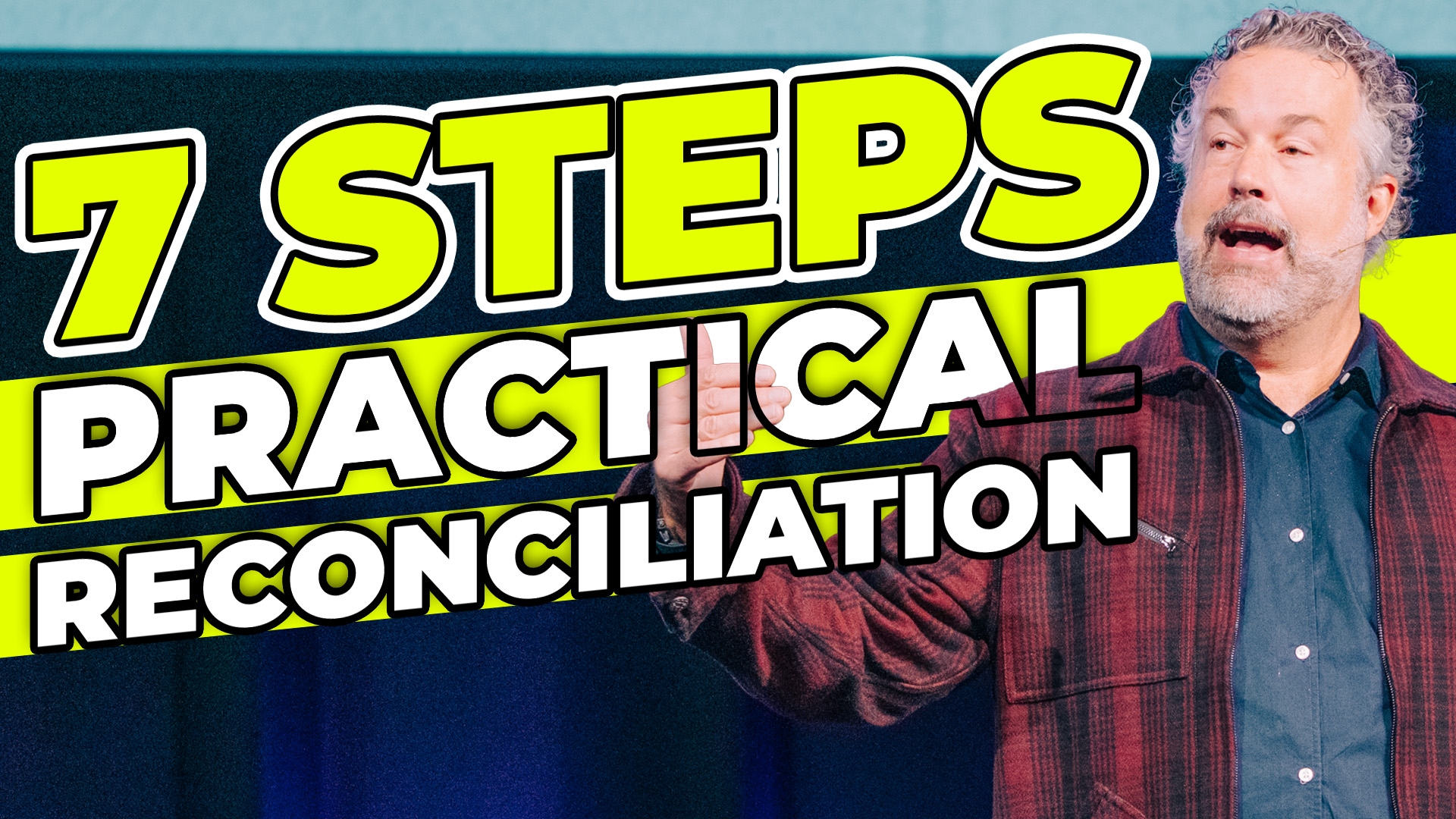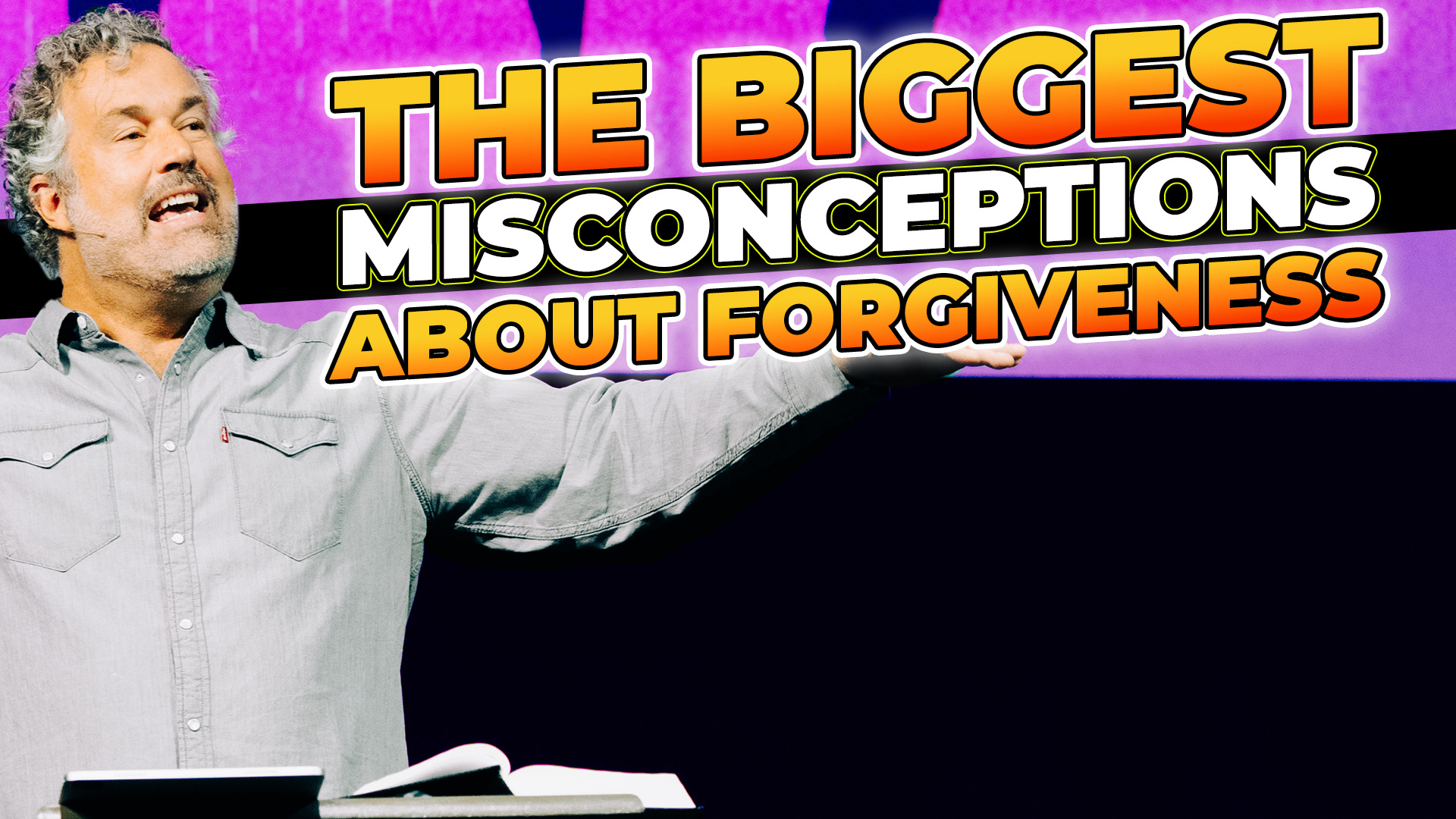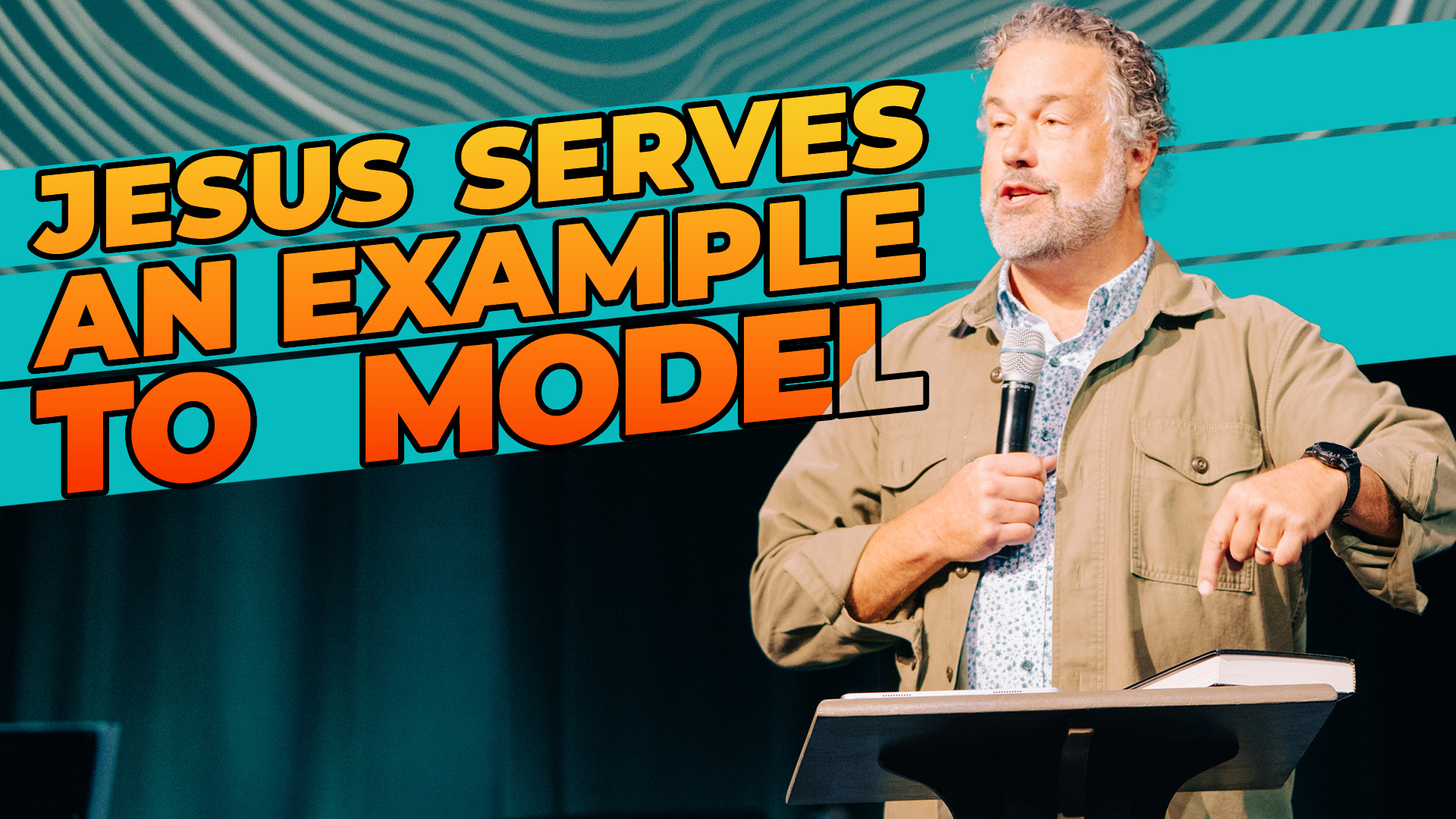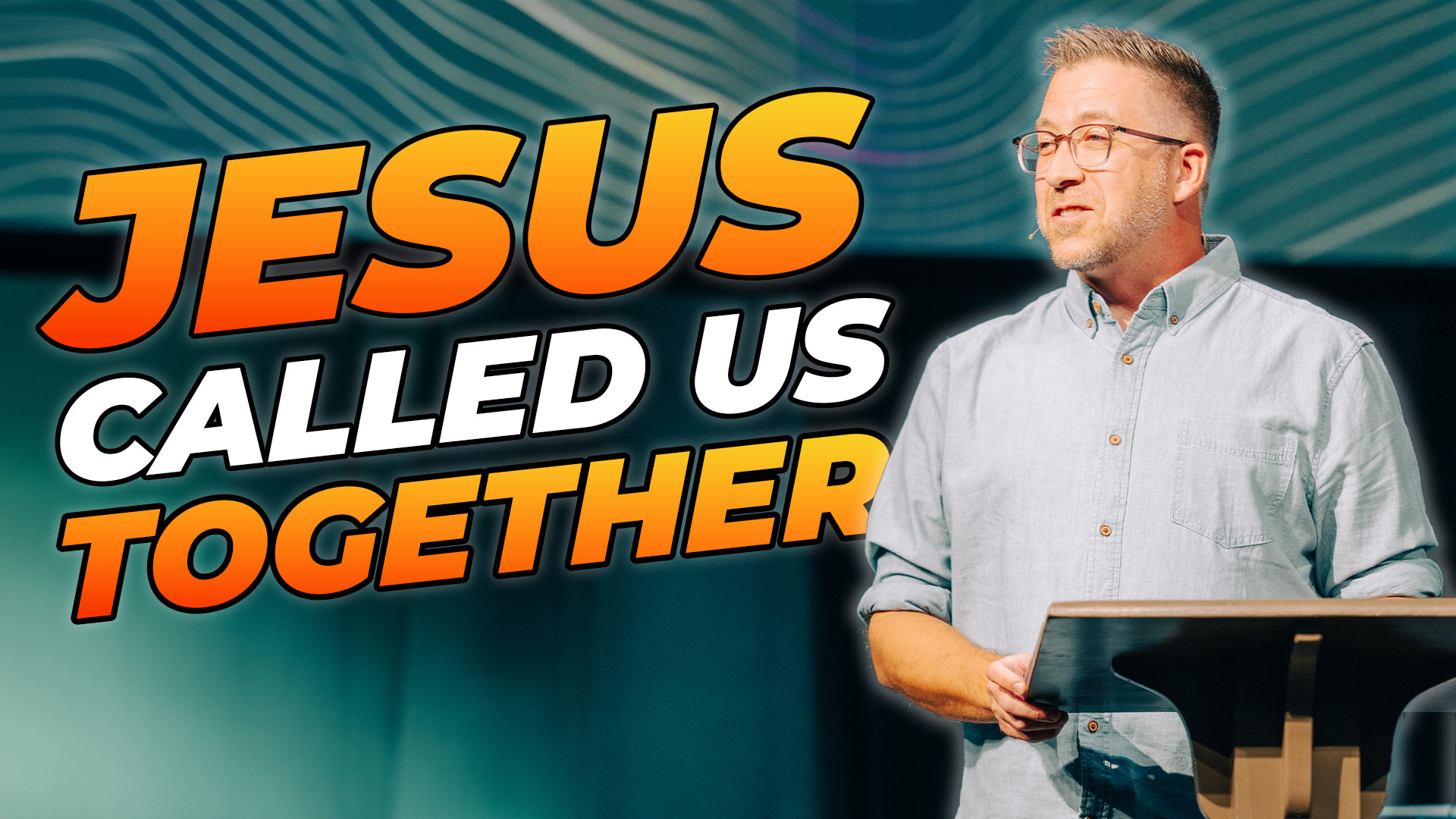Join us for a FREE Thanksgiving Dinner, Nov 27 CLICK HERE to learn more
The Fruit of Forgiveness: Canceling Debts
By Steve Huber
(This blog is condensed from the entire sermon that you can watch or listen to using the players above.)
The Fruit of Forgiveness: Cancel Debts, Not People
We’ve spent the past several weeks walking through a series on forgiveness, and this message brings it all together: a reminder, a review, and a call to respond.
At Covenant, we don’t just want to talk about forgiveness — we want to experience it. That’s why at the end of this message, we invited everyone to write down something they’ve forgiven or are trying to forgive and bring it to the foot of the cross.
Because when Jesus canceled our debts, He didn’t just make us free... He made us forgivers.
Forgiveness Is the Gift of Jesus
Forgiveness is not just something Jesus teaches; it’s something He gives.
In Mark 2, we read about a paralyzed man whose friends lowered him through a roof to get to Jesus. The need seemed obvious: physical healing. But before Jesus told him to rise and walk, He said something deeper:
“Son, your sins are forgiven.”
That’s the heart of the gospel. Jesus sees past the surface need and goes to the soul. He gives the gift that every human being most desperately needs: forgiveness.
Ephesians 1 says:
“In Him we have redemption through His blood, the forgiveness of sins, according to the riches of His grace which He lavished upon us.”
That word lavished is important. God isn’t stingy with grace. He pours it out in abundance. Forgiveness is not a reluctant gift... it’s the Father’s joy to give.
Unless you’ve perfectly loved God and your neighbor in every thought, word, and action, you need this gift. We all do. It’s the doorway into the Christian life.
To become a Christian is to say: I need to be forgiven.
Forgiveness Is the Calling of Jesus
Forgiveness isn’t just a gift to receive, it’s a calling to live.
Peter once asked Jesus, “Lord, how often should I forgive? As many as seven times?”
Jesus replied, “I tell you, not seven times, but seventy-seven times.”
That wasn’t a number to track, it was a lifestyle to practice. Forgiveness is not a quota; it’s a way of life.
Tim Keller once called forgiveness “a form of voluntary suffering.” When you forgive someone, you choose to absorb the pain rather than pass it on. It hurts, but it heals.
And not only spiritually. Research has shown that forgiveness actually improves physical health. It lowers stress, reduces anxiety, and even helps your heart. God designed forgiveness not only for reconciliation but for restoration. When you live bitter, it corrodes your soul. When you forgive, it frees it.
Forgiveness Is the Foundation of Christian Community
Forgiveness is not optional in the church. It’s essential.
Paul writes:
“Put on then, as God’s chosen ones, holy and beloved, compassionate hearts, kindness, humility, meekness, and patience… forgiving each other as the Lord has forgiven you.” (Colossians 3:12–13)
Forgiveness is one of the distinguishing marks of the people of God. It’s the soil where relationships grow.
And in Ephesians 4:32, Paul adds:
“Be kind to one another, tenderhearted, forgiving one another as God in Christ forgave you.”
To “walk in love” means forgiveness becomes our lifestyle. It’s not just something we do once in a while, it’s who we are. As God’s people, we are called to extend to others what God has given to us: unearned grace.
What Forgiveness Really Is
We’ve talked a lot about what forgiveness isn’t in this series. But what is it, really?
Here are five truths to hold onto
.
1. Forgiveness Is Absorbing the Debt
When someone sins against you, something real is lost — trust, peace, money, safety, reputation, security. That loss creates a debt.
Forgiveness means you stop making the other person pay and instead choose to absorb the cost yourself.
Colossians 2:13–14 says:
“He forgave us all our sins, having canceled the record of debt that stood against us… He set it aside, nailing it to the cross.”
That’s what Jesus did for us. He took our moral debt and paid it with His own blood. Now He invites us to live the same way. Canceling debts instead of collecting them.
2. Forgiveness Is Laying Down the Right to Get Them Back
When you forgive, you lay down your right to revenge. You stop rehearsing payback in your mind. You refuse to destroy their reputation or hold on to silent hatred.
Forgiveness doesn’t mean there won’t be justice or consequences. But it means you won’t be the one to deliver the punishment. God in Christ has not punished us for our sins. He punished His Son in our place. We forgive because we’ve been forgiven that way.
3. Forgiveness Is Forgiving for God’s Sake
In our culture, we often hear, “I’m forgiving for me.” Meaning, “I’m doing this so I can move on.” That’s not wrong, forgiveness does bring freedom. But Christian forgiveness is different. We forgive for God’s sake.
“Be kind to one another, tenderhearted, forgiving one another as God in Christ forgave you.” (Ephesians 4:32)
We forgive not just to relieve our pain but to reflect God’s heart. We forgive before God, because He’s forgiven us so much more than we’ll ever be asked to forgive anyone else.
And forgiving for God’s sake doesn’t mean ignoring justice or instantly trusting again. You can forgive and still hold someone accountable. You can forgive and still rebuild trust slowly.
4. Forgiveness Is Both a Decision and a Process
Forgiveness starts with a decision. You may not feel it yet but you choose it because it’s right. Then, over time, it becomes a process. Every time bitterness resurfaces, you bring it to God again. You pray, “Lord, help me forgive,” and you do it again — seventy-seven times if necessary.
Forgiveness isn’t a one-time event; it’s a lifelong practice. One woman I know suffers chronic pain because of someone’s careless mistake. She said, “I think Jesus said seventy-seven times because sometimes you have to forgive for the same thing over and over.”
That’s what grace looks like: hard, honest, repeated mercy.
5. Forgiveness Is Beautiful
Perhaps the most stunning picture of forgiveness in modern history happened in 2006 in Lancaster County, Pennsylvania. A man named Charles Roberts entered an Amish schoolhouse and committed an unthinkable act — killing five young girls and then himself.
The world was horrified. But what shocked everyone even more was how the Amish community responded.
They forgave him — immediately. They went to his funeral. The first person to hug the shooter’s mother was a mom who had lost her daughter in the attack.
They collected money for Roberts’ widow and children. They invited the family to stay in their community.
That’s what grace looks like when it takes on flesh. Forgiveness didn’t erase the tragedy — but it transformed it.
Forgiveness is costly. But it’s also beautiful.
Forgiveness Brings Healing: to Yourself and Others
Forgiveness is both personal and communal. Every person in that Amish town needed the forgiveness of Jesus — and every person also had someone to forgive.That’s true for us too. You need the gift of forgiveness from Jesus.
And you have the calling of forgiveness for others.
When you forgive, you create space for the Spirit to work. You make room for peace to replace bitterness, for freedom to replace resentment, and for joy to return to your life.
A Practice in Letting Go
At the end of our worship service, we invited everyone to write something down — something they’d forgiven, or something they were still wrestling to forgive. No names, no details. Just a word, a phrase, a hurt.
Then we brought those papers to the front and left them at the foot of the cross. Because that’s where all debts belong.
When Jesus went to the cross, He took the record of our sin — the list of every offense, every failure, every unkind word — and nailed it there.
Our culture cancels people. God cancels debts.
And that’s why we forgive.



